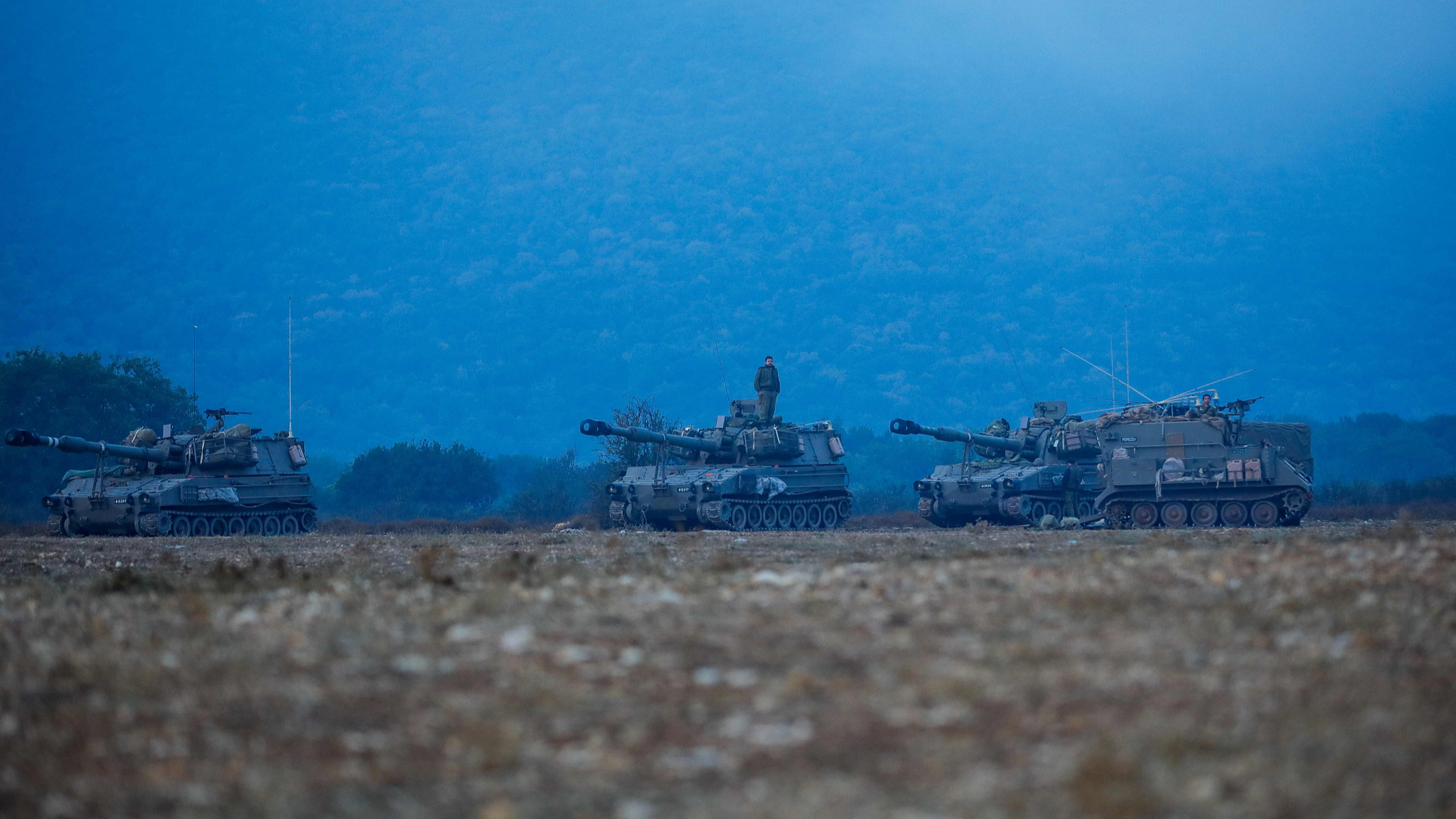The United Nations humanitarian office said on Tuesday that nearly 200,000 people or nearly a tenth of the population, have fled their homes in Gaza since the start of hostilities and is poised for shortages of water and electricity due to a blockade.
Israel intensified its air strikes in Gaza on Monday and imposed a "complete siege" on the Palestinian enclave on the third day of conflict following the Palestinian Islamic Resistance Movement's (Hamas) Saturday surprise attack on Israel.
On Monday morning, Israel Defense Forces (IDF) Spokesman Daniel Hagari told reporters in a briefing that the military has regained control over all the communities in southern Israel, which were stormed by Hamas militants on Saturday after they broke out through the security fence between Israel and Gaza.
At night, Israeli Energy Minister Israel Katz announced that "all the water supply pipes from Israel to the Gaza Strip have been disconnected." Israel also halted the passage of goods, electricity and food to the Strip. "Israeli air strikes hit 86 towers in the Gaza Strip and this led to various damages," told an official in Palestine Telecommunications (Paltel) Company.

Israeli soldiers armed with artillery cannons man their position at an undisclosed location in northern Israel bordering Lebanon on October 8, 2023. /CFP
Israeli soldiers armed with artillery cannons man their position at an undisclosed location in northern Israel bordering Lebanon on October 8, 2023. /CFP
'Total siege'
"The price the Gaza Strip will pay will be a very heavy one that will change reality for generations," Israeli Defense Minister Yoav Gallant said while visiting one of the towns that had been attacked by Hamas. He ordered a "total siege" on Gaza, a day after his government formally declared war on the Hamas militant group that has ruled the enclave since 2007.
"No electricity, no food, no water, no gas – it's all closed," Gallant said in a video message in Hebrew. "We are fighting animals and are acting accordingly.”
"The (Israeli) defense minister has made it quite plain, this is total war," Makler explained. "He's stopping all the things that civilians need to live: water, power, food, fuel – and power also means water in the Gaza Strip, because they don't have much fresh water themselves," an Egyptian military official, speaking on condition of anonymity, told AP.
Retired Israeli general Giora Eiland, a former head of the country's National Security Council, said to France 24 that "total war" was necessary to prevent future attacks.
"We have to completely eliminate the threat of Hamas, and the only way we can achieve this is by using all the aggressive measures that we have – including, if needed, to create a terrible humanitarian crisis in Gaza, because this kind of pressure might be the most effective one," Eiland said, claiming Hamas's continued control of the Gaza Strip meant the local population supported the Islamist group – and, consequently, "preferred to fight and die".
The Israeli military said more than 900 people already have been killed in Israel. In Gaza, more than 680 people have been killed, according to authorities there; Israel says hundreds of Hamas fighters are among them. Thousands have been wounded on both sides.
No place safe
The UN's humanitarian office says four schools and eight healthcare facilities in Gaza have sustained damage since Saturday. It expected "severe shortage" of drinking water in Gaza due to Israeli cuts.
"Our schools give shelter to civilians and should be protected at all times, including during fighting," said The United Nations Relief and Works Agency (UNRWA) director of communications Juliette Touma, whose organization provided food aid to around the half the population of Gaza even before the latest fighting. “What was already a crisis pre-October 7 could turn into a catastrophe for some two million people,” she warned.
"Most people seek refuge in the UNRWA schools across the enclave, but media shows that some schools are even bombed, which is another humanitarian tragedy," said Alzaharna, replying in text messages from the Palestinian enclave. "No place is a safe place in the Gaza Strip and everyone can be the next."
(With input from agencies)


